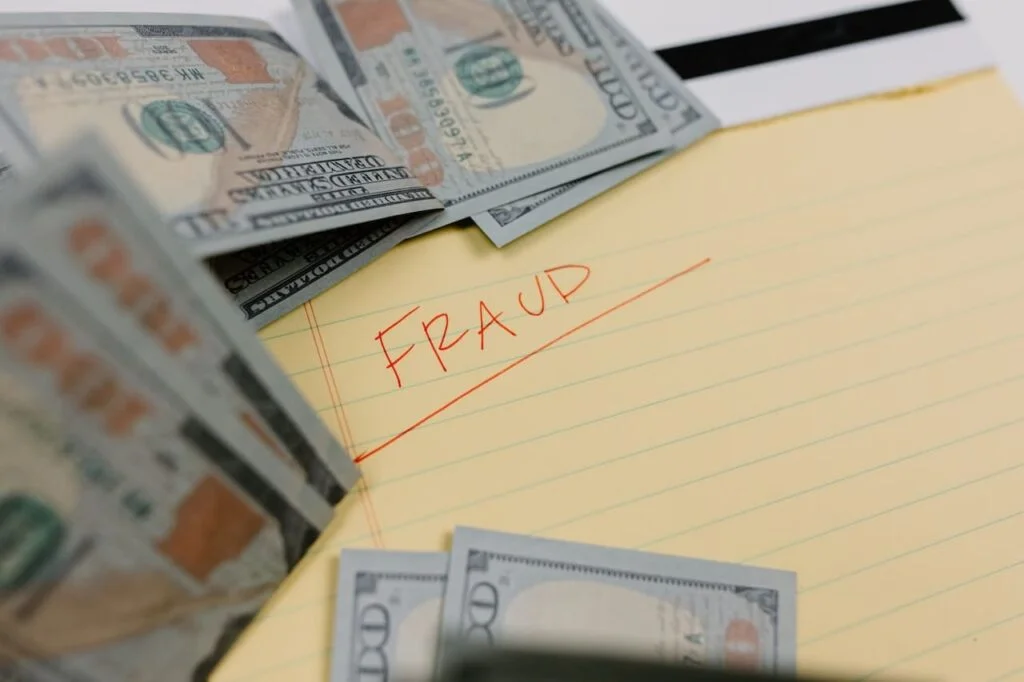Uncovering The Risks Of Car Insurance Fraud With A Professional Lawyer

Have you been charged with a car insurance-related crime? If so, it’s necessary to educate yourself on the potential implications and how a lawyer can protect your rights in court. Car insurance fraud is a growing concern for both insurance companies and policyholders. It occurs when someone intentionally deceives a car insurance company to receive benefits they are not entitled to.
It can take various forms, such as staging accidents, exaggerating injuries, or falsifying claims. According to the Federal Bureau of Investigation (FBI), non-health insurance-related fraud costs the United States more than $40 billion per year, with car insurance being one of the most common types. Let’s explore what car insurance fraud entails, the risks associated with this type of criminal activity, and what to do if you’re charged with such scams.
What Is Car Insurance Fraud?

Car insurance fraud is a deceptive practice that involves individuals or groups of people intentionally providing false information to an insurance company for financial gain. This widespread issue not only impacts an insurance company but also affects innocent policyholders, leading to financial losses.
Based on the CDI’s Fiscal Year 2020-21 report, its fraud division received over 15,000 suspected fraudulent claims (SFCs) referrals with a potential loss amounting to more than $215M.
Consequences of Car Insurance Fraud

The quick short-term gain of insurance fraud may seem enticing initially, but it pales in comparison to the potential legal, financial, and reputational damage. As such, it is advisable to maintain honesty and integrity in all insurance matters. It’s not just the ethical choice; it’s the choice that can protect you from life-altering consequences.
The Legal Consequences of Car Insurance Fraud
Car insurance fraud is not a victimless crime. It costs the insurance industry billions of dollars each year, a cost that is eventually passed down to consumers in the form of higher insurance premiums. The legal ramifications for those caught engaging in car insurance fraud are severe.
In many jurisdictions, insurance fraud is considered a felony. This means it’s punishable by significant fines, probation, and possibly even prison time. The exact consequences vary depending on the jurisdiction and the magnitude of the fraud committed, but they can be ruinous, both financially and personally. Beyond criminal penalties, individuals convicted of insurance fraud can also face civil penalties. The insurance company defrauded may sue for damages, leading to even more financial strain.
The Consequences of Fraud on Personal and Professional Life
The personal and professional consequences of car insurance fraud can be equally devastating. Being convicted of a felony can severely limit employment opportunities. Many employers conduct background checks and are wary of hiring individuals with criminal records, particularly for positions that require trust and integrity.
Moreover, a fraud conviction can seriously damage an individual’s personal reputation. The social stigma attached to criminal activity can lead to strained personal relationships and general ostracism within one’s community.
Finally, if you’re convicted of insurance fraud, it can become more difficult and expensive to obtain insurance in the future. Some companies may refuse to insure you altogether, while others will significantly raise your premiums due to the risk you pose.
Types of Auto Insurance Fraud

Staged Accidents
One of the most common forms of auto insurance fraud involves staged accidents. Fraudsters intentionally cause a collision or exaggerate the damage from a legitimate accident to collect insurance payouts. These include:
- Swoop and squat: A fraudster suddenly pulls in front of an unsuspecting driver and slams on the brakes, causing a rear-end collision.
- T-bone accident: The fraudster waits at an intersection for a victim to enter and then accelerates, causing a side-impact collision.
- Wave-in crash: The fraudster waves a driver into traffic and then intentionally crashes into their vehicle, claiming they never signaled.
False or Exaggerated Claims
Another prevalent form of auto insurance fraud involves filing false or exaggerated claims. Fraudsters do these by falsifying repair invoices to inflate the cost of repairs, claiming pre-existing damage as new damage from a recent accident, and reporting stolen vehicles that were sold or disposed of by the owner.
Misrepresentation of Insurance Applications
Some individuals attempt to lower their insurance premiums by providing false information on their applications. This fraudulent activity occurs by lying about the primary driver of the vehicle, falsifying the vehicle’s garaging address to obtain lower rates, and underreporting annual mileage.
What to Do if You’re Charged with Car Insurance Fraud

If you’ve been charged with this crime, especially if it’s your first encounter with the law, you might be feeling overwhelmed and uncertain. It’s crucial to act promptly and wisely to safeguard your rights and establish a strong defense. Remember, a charge is not a conviction. You are presumed innocent until proven guilty. The legal process may seem daunting, but with an experienced lawyer by your side and a proactive approach, you can effectively navigate the legal process. Below are the steps you should take:
Stay Calm and Cooperative
Being charged can be a distressing experience. However, it’s important to stay calm. Law enforcement might arrive at your home or place of work to arrest you. At this point, cooperate with them. Avoid any form of resistance or confrontation, as this could result in additional charges like resisting arrest.
Exercise Your Right to Remain Silent
You’ve probably heard the phrase “You have the right to remain silent” in movies or TV shows, and it’s indeed a fundamental right in real life. It means that you are under no obligation to answer any questions the police or investigators might ask you related to the charge. Remember, any information you disclose can be used against you in court. Therefore, it’s best to avoid discussing your case without a lawyer present.
Hire a Lawyer
Securing legal representation should be your top priority. Look for an attorney specializing in insurance fraud cases. They can guide you through the legal process, which can be intricate and confusing for those unfamiliar with it. A professional lawyer will also know the best defense strategies for your situation. You can find such lawyers by searching online, asking for referrals, or contacting your local bar association.
Collect and Preserve Evidence
While your lawyer will spearhead this process, it’s helpful if you start gathering any evidence that can support your defense. For instance, if you’ve been charged with staging a car accident, you might have traffic camera footage, witness statements, or phone records proving that the accident was genuine. Ensure to keep all related documents safe and share them with your lawyer.
Work with Your Lawyer
Honesty is key when working with your attorney. Even if some details make you uncomfortable or seem irrelevant, share them. Your lawyer’s role is to defend you, not to judge you, and every piece of information can potentially contribute to your defense strategy.
Prepare for Court
If your case proceeds to court, your lawyer will help you prepare. This might involve role-playing your testimony, going through potential questions the prosecutor might ask, and understanding courtroom etiquette. For example, if you’re accused of inflating an insurance claim, the prosecutor might ask questions to determine if you knew the value of the claim was exaggerated. You and your lawyer can prepare responses to these potential questions.
Why a Lawyer is Important When Charged with Car Insurance Fraud

As we’ve seen in the previous section, hiring a lawyer is a crucial step in safeguarding your rights when charged. An insurance company filing such charges usually take such cases seriously and hires the best legal representation. So, you should have the best lawyer by your side as well. In such a time, an experienced lawyer can provide invaluable assistance. Here’s how a lawyer can help:
- Legal Guidance: The legal system is complex and can be challenging to navigate for laypersons. A lawyer will guide you through the entire process, from the initial charges to court proceedings, if it comes to that. They will also ensure you understand your rights and the legal jargon associated with your case.
- Investigation and Evidence Gathering: A good lawyer will conduct a thorough investigation of your case. They will review the insurance company’s allegations, gather necessary evidence, interview potential witnesses, and review relevant documents and records. This investigation can help build a strong defense on your behalf.
- Formulating Defense Strategies: Based on their investigation and their understanding of the law, a lawyer can develop a strategic defense tailored to your case. This might involve challenging the validity of the evidence against you, questioning the procedures used to gather it, or establishing a lack of intent to commit fraud.
- Representation in Court: If your case goes to court, your lawyer will represent you, presenting your defense, questioning witnesses, and arguing on your behalf. Their knowledge and experience in court can be instrumental in ensuring that your side of the story is heard and understood.
- Plea Negotiation: Depending on the circumstances of your case, your lawyer might suggest negotiating a plea deal with the prosecutor. In such a case, you could agree to plead guilty to a lesser charge in exchange for a lighter sentence. Your lawyer’s negotiation skills and understanding of the system can be key in reaching a favorable deal.
- Post-Trial Assistance: If you are convicted, a lawyer can still assist by helping with the appeals process or advising on steps to mitigate the impact of the conviction, such as expungement or seeking a pardon.
Act Now, Protect Your Interests!

If you have been charged with fraud by a car insurance company, Alameda County criminal defense lawyer, Louis J. Goodman would like to hear from you. Goodman has been a criminal defense attorney for over 20 years, and before that, he was an Alameda County Deputy District Attorney for seven years.
Facing fraud charges in the United States carries a potentially hefty fine and may also mean jail time if found guilty. Goodman’s experience and his team of criminal defense lawyers present the best chance of safeguarding your rights during the whole process and giving you a fair chance in court. Talk to Goodman about your case. Book a free consultation right now.
7 Frequently Asked Questions about Car Insurance Fraud

-
What is car insurance fraud?
Car insurance fraud is a serious crime that occurs when someone deceives an auto insurance company for financial gain. This can happen in various ways, like staging accidents, inflating repair costs, or falsifying injury claims. For example, a person might commit car insurance fraud by purposely causing a minor fender bender or a rear-end collision, then claiming excessive medical treatment costs.
-
What are the types of car insurance fraud?
There are two primary types of car insurance fraud: soft fraud and hard fraud. Soft insurance fraud, also known as opportunistic fraud, involves policyholders exaggerating legitimate claims. For example, after a real car accident, they might inflate repair costs or claim for medical treatment they didn’t receive. Hard insurance fraud, on the other hand, involves more deliberate acts like staged accidents, auto theft, or submitting entirely false claims to the car insurance company.
-
What are some common car insurance scams?
Some common car insurance scams include staged accidents, where drivers deliberately cause a crash to claim insurance money. Other scams involve a “panic stop,” where a driver suddenly brakes, causing a rear-end collision, or a “parking lot scam,” where a driver falsely claims that another vehicle hit their parked car. Agent fraud is another scam where an insurance agent pockets premiums instead of creating an insurance policy.
-
How does a car insurance company uncover fraud?
Car insurance companies have special investigation units that examine suspicious claims. They may use a variety of resources, including police reports, medical records, witness testimonies, and even social media to uncover fraud. Organizations like the National Association of Insurance Commissioners and the National Insurance Crime Bureau also provide support in investigating potential fraud cases.
-
What are the risks of committing car insurance fraud?
Committing car insurance fraud can result in serious consequences. If found guilty, one can face heavy fines, probation, or even jail time. Furthermore, a fraud conviction can make it harder to secure insurance coverage in the future, with increased premiums or outright denial of coverage. The conviction can also affect employment opportunities and personal relationships due to the attached stigma.
-
What is the role of a lawyer in a car insurance fraud case?
If you’re charged with car insurance fraud, a lawyer can help protect your rights and build a strong defense on your behalf. They can guide you through the complex legal process, collect and review evidence, negotiate with prosecutors, and represent you in court. In essence, they can provide the necessary legal and emotional support during a challenging time.
-
Can false information on car insurance applications be considered fraud?
Yes, providing false information on car insurance applications is a form of insurance fraud known as “fronting”. This might include giving a false address where the vehicle is kept, underreporting mileage, or not declaring modifications. Such actions are taken to secure a lower premium, but they can lead to a denied claim, policy cancellation, or even legal action if discovered.
Request A Free Case Evaluation
Fields marked with an * are required
"*" indicates required fields



